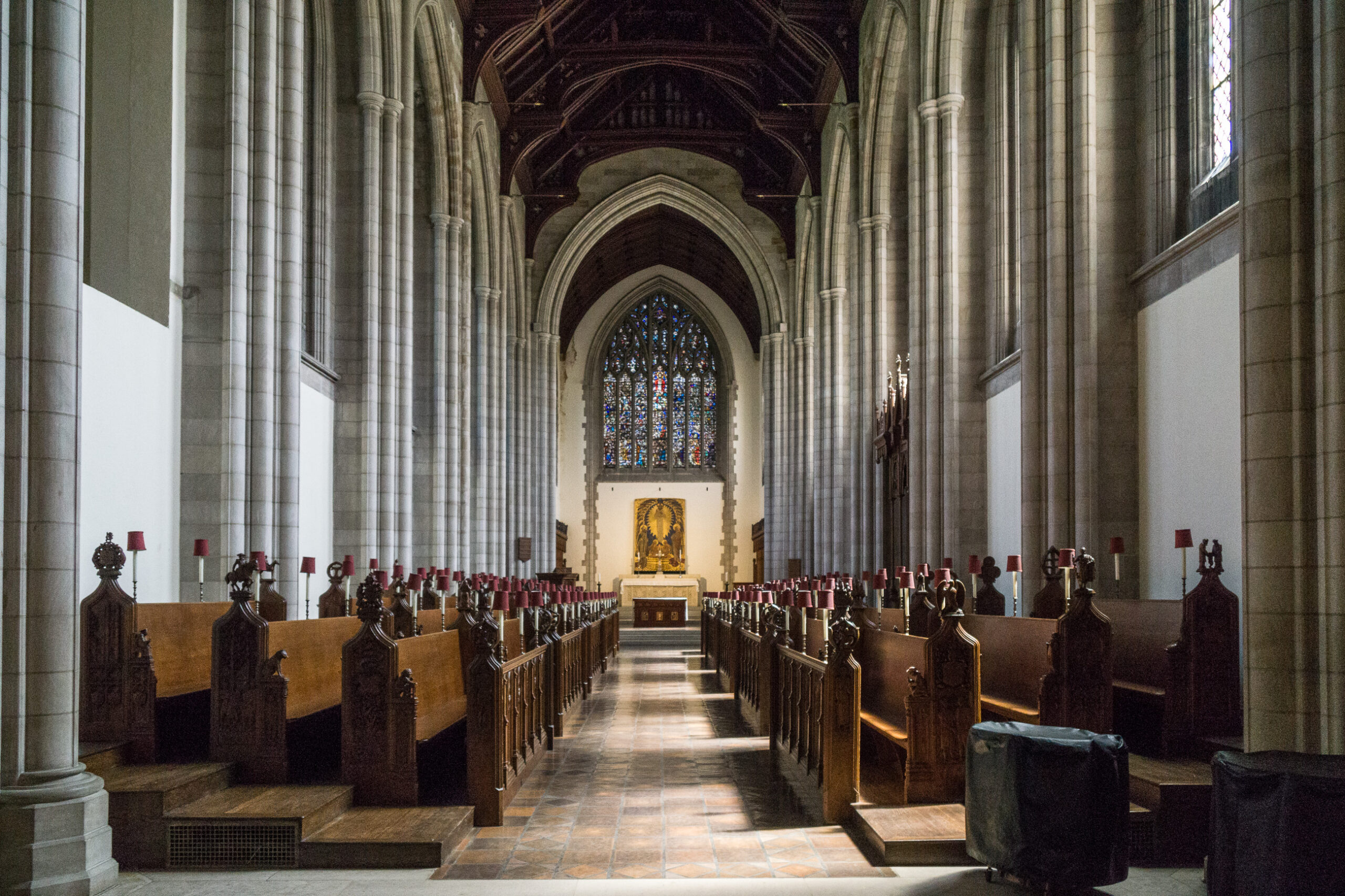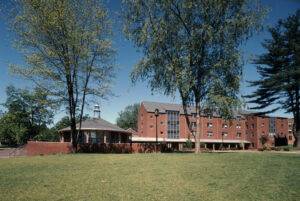Olivia Papp ’23
Features Editor
Spiritual and religious life at Trinity is a community that provides countless opportunities for religious observance as well as moral and ethical reflection. Trinity’s students and faculty are able to engage in religious communities. Some of the religious practices that students engage in on campus are Episcopalianism, Roman Catholicism, Judaism, Zen Buddhism, Islam, Hinduism, and interfaith cooperation. Spiritual life at Trinity emphasizes upholding values of respect and appreciation, while creating spaces of community and inclusion.
The Associate Chaplain for Roman Catholic Life John Campbell began his tenure at Trinity in 2007. Campbell relayed that his time at Trinity has been “fabulous.” He further emphasized that “Trinity is a great place to minister. The faculty members are great, and Trinity has a very welcoming community. The community here is very interested in spirituality and faith.”
Campbell spoke on the changes the religious community has seen with the Covid-19 pandemic, and said the norm of in-person services beginning at 12:30 on Sundays has changed. He described the typical pre-pandemic schedule, and said that the chapel singers “will sing in the church on Sunday at 7:00 PM. Catholic Priests will also come into sing. Buddhists will practice meditation on Tuesday nights in the Crypt Chapel, downstairs in the basement in the main chapel. Muslim prayers will be held in the Garrett Common room.” He also added that “What’s special about Trinity, is that we are on the cutting edge of Muslim prayer. We are one of the first colleges to have Muslim Chapel, aside from some other schools like Yale and Duke. The Hillel House, right next to Campus Safety, is another vibrant program. We host gospel choir.”
For each spiritual group that Trinity students represent, there are student governance groups. For example, the Catholics have the Newman club. Christians, broadly, have Chapel Council. Those that practice Judaism are involved with Hillel. This way, it is easier for students to involve themselves with religious life at Trinity.
With Covid-19 present during the spring semester, Campbell says “people are meeting weekly at meetings in the Charleston House for Interfaith Cooperation. Everything has been on Zoom or Facebook Live. In the next few weeks, we will start holding events in person for 25 people for Catholic mass in the chapel. All of the links to these events can be found on the Trinity Today site.”
Obviously, it is always better and possibly more effective for spiritual groups to gather in person. When the campus entered the Orange Alert Level because of increased Covid-19 cases this past fall, spiritual groups would meet on Facebook Live.
Campbell reflected on the strength of the religious community at Trinity and relayed that he would “like to thank the resiliency of our Trinity community. This time last year, around Mar. 13, all religious services kept going. Things have been altered but we have stepped forward and we have stayed focused mentally and spiritually.”
Virtual Chapel Coordinator Elizabeth Rousseau ’22 helps to put together the services, host the Zoom meetings, and stream to Facebook Live. Rousseau stated that prior to the pandemic, she “was also very active with the Episcopal services.” Throughout the course of the pandemic, students and chaplains alike have made it possible for the Trinity community to have the option to continue practicing their faith.
Reverend Trevor Beauford has had two different roles during his time at Trinity. For two semesters, he has served as an Associate Chaplain of Protestant life. Last May, he became the Interim College Chaplain. Beauford has served as the pastor of the local church in Hartford and at Trinity. He supports all faith traditions and states that he has “tremendous colleagues who are all really professional and provide significant religious lives for the surrounding community.”
About sixty students are able to attend Reverend Beauford’s services. He believes that his services are not as effective online as they were in person, but that “students are engaging, and everyone is giving it a shot. I have noticed that more people are attending online as opposed to services in a regular semester. I think this is because students don’t have to go anywhere and can join on in their room.”
Reverend Beauford remarked that the chaplains are “equally making sure that we are providing services for Chaplains. We want to be fully present for students.” He concluded by adding that “we are here to be a part of the Trinity community and introduce as many students as possible to religious life at Trinity.”






+ There are no comments
Add yours